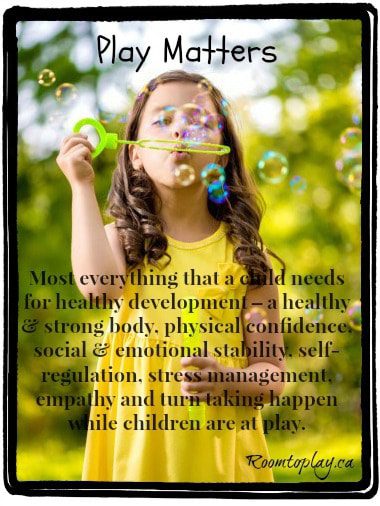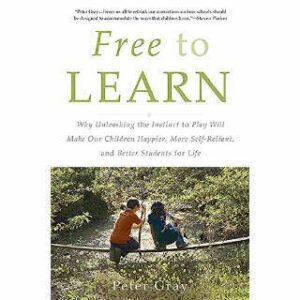- filed under: Family Life, Play Research
Making Play a Priority
“Play is the work of the child,” wrote Maria Montessori more than 100 years ago. Most everything that a child needs for healthy development – a healthy & strong body, physical confidence, social & emotional stability, self-regulation, stress management, empathy and turn taking happen while children are at play. But making play a priority isn’t always easy for families.
So, then, what are the outcomes if children do not play? What happens to children if play is not a priority in their home and they grow up with a play deficit? Leading child development researchers claim that children who do not have access to free, unstructured play during their formative years are at a much higher risk of developing anxiety and depression. So, play is not just fun – it’s essential to raising happy, healthy kids!
I was very inspired by this TED talk by Dr. Peter Gray and I think you will be too.
Here are the notes I took while watching it:
- In the wild, social animals play to keep fit and practice social skills.
- Close proximity without losing one’s temper is essential for social animals. Play allows children to practice emotional regulation skills.
- Risky play is important for children. In cultures where children are free to play without adult supervision, they learn valuable survival skills. Children from these cultures were observed to be the brightest, most cooperative, well adjusted and happiest children anywhere the researchers studied.
- The barriers to play such as parental fears, no matter how unreasonable, are hard to shake once they have taken hold.
- Once there are fewer kids outside, playing outside becomes less attractive and it, ironically, becomes less safe.
- Play is nature’s means of ensuring humans acquire the skills they require to become fully functioning adults.
- Play deprivation results in an over reaction of fear. Studies showed that play deprivation resulted in freezing or lashing out with inappropriate aggression when in an unfamiliar environment. Play deprivation results in a lack of ability to respond to social signals.
- The largest animals with the biggest brains play the most. Human children play more than any other mammal.
- Modern life means a rapid erosion of free play. He attributes this decline of play to the spread of school outside of school walls.
- We have developed the incorrect notion that self-directed choice activities in children are a waste of time and thus childhood has become a time of resume building.
- Today, “play” almost always means following the directions of adults in structured activities while wearing a uniform: playing soccer, playing football, playing hockey.
As a result, we see in children today:
- increased anxiety and depression, narcissism, and suicide rates
- a lack of an internal sense of control, which sets children up for depression and anxiety because they no longer control their life and experiences, bad things keep “happening” to them.
- a decrease in creative thinking, empathy and creativity
How we can turn this around:
- Play is where children learn they are in control of their own lives and learn to solve problems, experience joy, learn to get along with others and experience empathy. By definition, play is creative and joyful. Find time to play everyday.
- Get to know neighbours, spend time with community members. Nurture your village.
- Work as a community to develop spaces for children to play.
- Provide free play opportunities.
- Develop adventure playgrounds in your community.
- De-emphasize the expectation of school learning taking priority over play.
If you want to learn more about Peter Gray’s work, order his book Free To play here.
Want more inspiration? Follow me on Pinterest:


